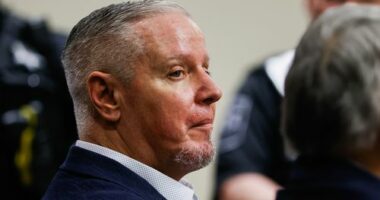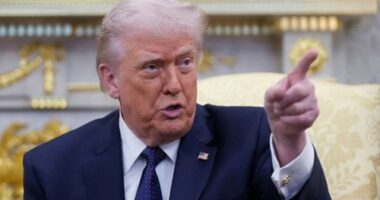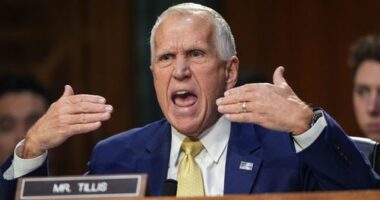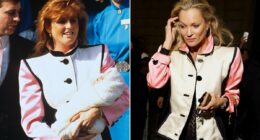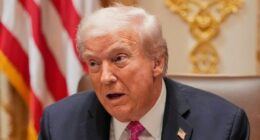Share this @internewscast.com

Opposition leader Sussan Ley has encouraged “assertive women” to join the party as she condemned remarks made by a Liberal Party elder about women in its ranks.
Alan Stockdale, former Victorian treasurer and ex-president of the federal Liberal Party, reportedly said women had become “so assertive” that men would need special rules to get pre-selected in the future.
The suggestion of reverse gender quotas follows the Liberals’ historic loss in the May federal election, after which its first female party leader, Ley, admitted the party had failed to speak to women voters.
“There is nothing wrong with being an assertive woman,” she said in a statement on Thursday.
“The Liberal Party needs to mirror, honor, and embody the values of contemporary Australia, which involves acknowledging the capabilities, worth, and leadership of the women within our membership.”
Nationals senator Bridget McKenzie joined the criticism of Stockdale, telling him to “read the room”.
“I hope women are assertive as they represent their communities and fight for the future of their countries,” she said.
“It was a shocking comment. I think it’s time for Alan [Stockdale] to head back to the Melbourne club, have a stiff whisky and chat with the old boys about what went wrong.”
Stockdale has since told Sydney’s Daily Telegraph newspaper he made “a lighthearted but poorly chosen remark”.
Prime Minister Anthony Albanese also responded to Stockdale’s comments on Thursday, saying the Liberal Party had to “have a good look at themselves and their structures”.
Labor has spent three decades working towards gender equality, introducing quotas in 1994.
Following the 2025 election, Labor women outnumber men in the lower house for the first time.
The Liberals have long been accused of having a “women problem” as female candidates are often placed in unwinnable positions and the party has lost support from female voter bases.
The Coalition elected 10 women MPs — eight from the Liberal Party and two from the Nationals — out of 42 in the lower house — only one more than the 2022 federal election.

